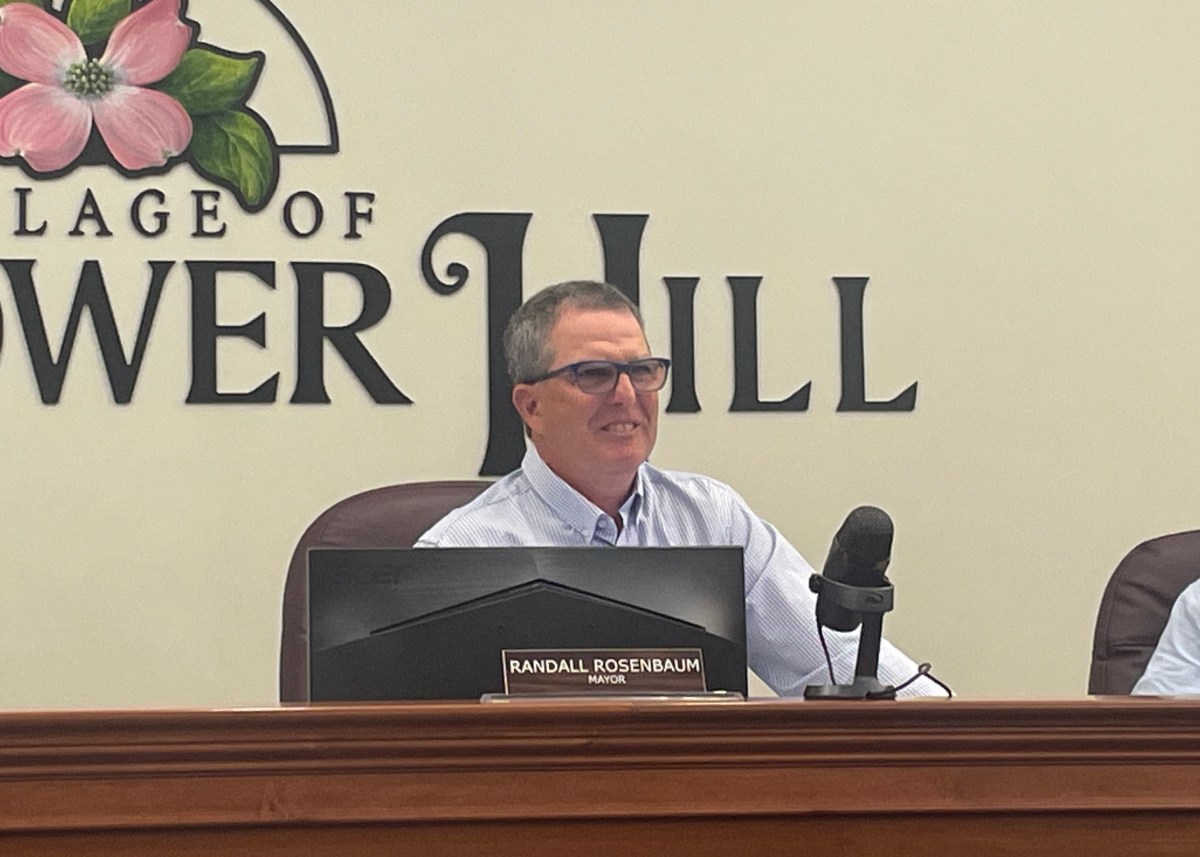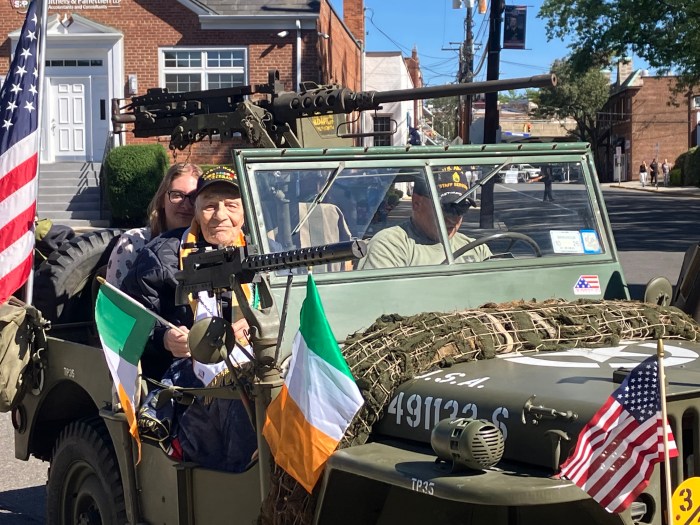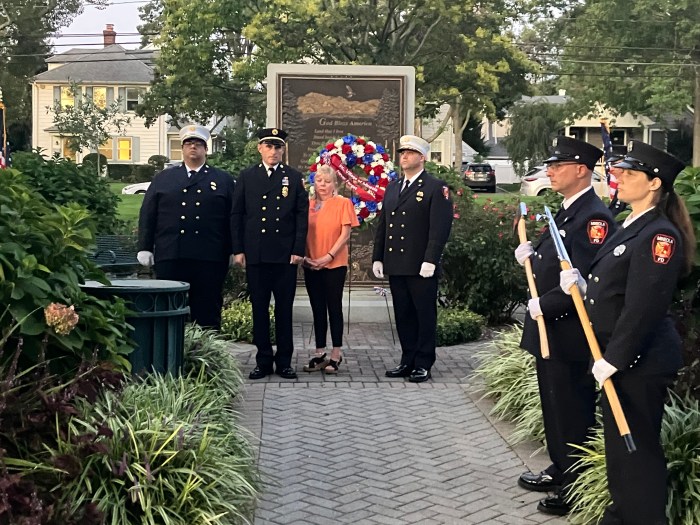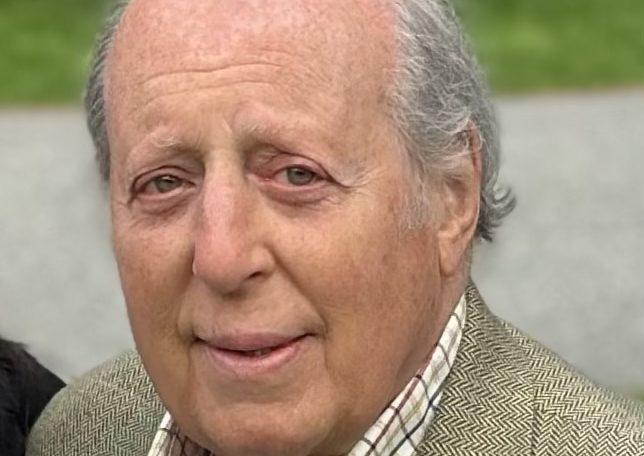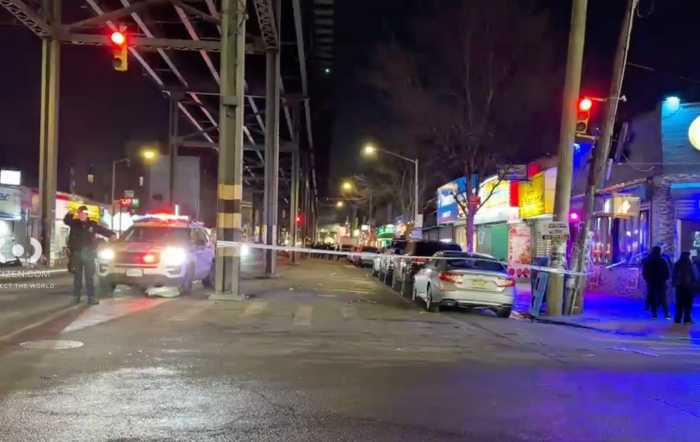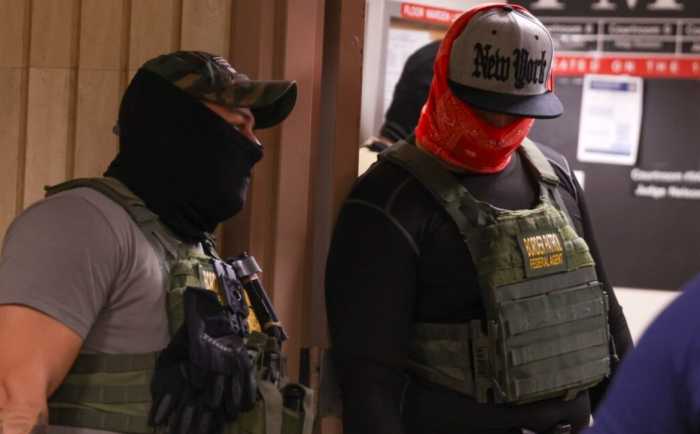The Village of Flower Hill Board of Trustees approved a local law that changes how residents replace trees removed from their properties, while also considering new rules for sports courts, pedestrian safety, and firefighter benefits during their Monday, Oct. 6 meeting.
The board adopted a law which allows residents who remove large trees to pay a $500 fee per tree into a village fund instead of replanting. The money will go toward planting trees in public spaces.
One resident urged the board to go further. Bea Helft asked the village to strengthen its tree list to prioritize oaks and other natives that support wildlife and pollinators.
“Cutting down 100-year-old oaks for ornamental trees is devastating to our environment,” she said.
Mayor Randall Rosenbaum noted that while the village maintains a recommended list of trees, residents may choose others. He pointed out that funds collected will help expand the street tree program with an emphasis on native plantings.
Trustees also briefly discussed proposed updates to village code regulating sports courts, including basketball and pickleball. Currently, tennis and platform courts require special permits and 20-foot setbacks. Officials suggested expanding the definition to cover all sports courts, with possible changes to setbacks, fencing height and noise mitigation.
“We want to get ahead of potential quality-of-life issues, especially with pickleball noise,” Rosenbaum said. The board expects to review draft language next month.
The trustees also reviewed a draft law restricting shrubs and plantings in road rights-of-way to improve sight lines and pedestrian safety. The proposal would ban hedges taller than three feet within 30 feet of intersections and require a four-foot clear zone along road edges.
The meeting also featured a presentation from the Roslyn Highlands Fire Company, which is seeking to increase pension-style benefits for volunteers to improve recruitment and retention.
Richard Tocci, a representative from the department, said they want to raise its Length of Service Award Program benefit from $20 to $30 per month of service, and extend the maximum from 30 to 50 years.
“We had a crew where the youngest guy was 65 years old,” Tocci said. “This small increase would cost taxpayers about $14 a year and help us bring in younger volunteers.”
Any change must be approved by all participating municipalities and then by referendum. The board said they would take it into consideration.
The board also moved to schedule a November public hearing on amending the village code governing decorative fences.
Under current rules, residents can appeal to the Board of Trustees for approval of front-yard fences, but officials said the provision was never intended to allow for gates or large structures. The proposed change would shift such requests to the Zoning Board of Appeals, which Rosenbaum said is “better suited to handle these types of applications” and would bring the code in line with its original intent.
Trustees ended the meeting with updates on community events, including a well-attended “Touch a Truck” day that drew hundreds of families, and noted that they are already planning next year’s event.
Rosenbaum also shared a public health update from the Nassau County Department of Health, which is distributing oral rabies vaccine packets across the North Shore, including parts of Flower Hill.
The packets are intended to be eaten by raccoons to help curb a recent rise in rabies cases.
Rosenbaum urged residents not to touch the baits, which resemble small tea bags, and to keep children and pets away from them.
“If you see one, just kick it into the bushes,” he said, noting the campaign is a precautionary measure to protect both wildlife and the community.
The board will reconvene Nov. 3 to continue discussions on sports courts, right-of-way plantings, and decorative fence regulations.




